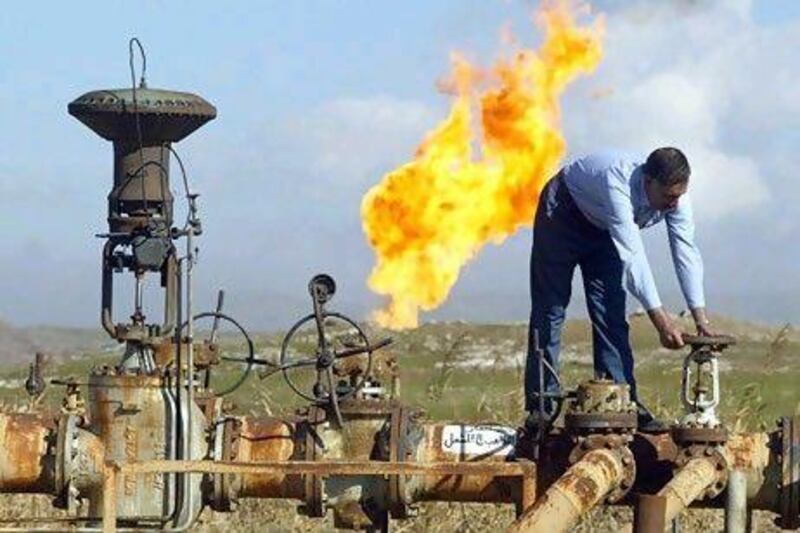'It is frustrating. The oil ministry's remuneration fee is very low," said a Japanese executive about Iraq's fourth oil bidding round.
The oil companies should have been salivating at the prospect of exploring the country with the world's third-largest conventional reserves, and probably the biggest potential for new discoveries. Forty seven of them qualified to bid in last week's auction.
But over two days, only three blocks out of 12 on offer were awarded, with a fourth bid turned down by the ministry of oil. The super-major companies with existing Iraqi contracts - BP, Shell, Total and ENI - were conspicuously absent. The Russian giant Lukoil, with its Japanese partner Inpex, secured Block 10 in the south-east, while Pakistan Petroleum picked up Block 8 in the restive Diyala province.
Block 9 near Basra was clearly the gem. From a purely geological point of view, it may be the best block in the world. It is adjacent to - probably an extension of - the giant fields of Majnoon and Nahr Umr in Iraq, and Azadegan and Yadavaran in Iran.
The winners, a consortium of privately held Kuwait Energy, Dragon Oil (51 per cent owned by the Dubai Government via Enoc) and the Turkish state oil company TPAO, have pulled off quite a coup. Kuwait Energy's formidable chief executive, Sara Akbar, told Dow Jones, "It is going to be profitable for us and Iraq. I am sure 100 per cent that there is oil on the block."
Yet Block 9 is not without its problems. Some of the fiercest fighting of the Iran-Iraq war took place in its marshes, and they are still strewn with unexploded munitions. The Iranians may respond badly if they feel the Iraqis are syphoning oil from their own giant fields, discovered a decade ago but the development of which have only inched forwards.
Iraq, already scaling back its production targets, arguably does not urgently need to find more oil. Gas is needed, to fuel power stations and remedy the miserable electricity situation.
Gas-prone areas in the remote and insecure Western Desert attracted no interest, though, potentially angering local authorities who hoped for investment and jobs.
Rather than offering foreign investors a share of profits or oil, as in virtually all other countries, Baghdad's interpretation of the Iraqi constitution compels it to use a "service contract" where contractors are paid a fee for each barrel extracted.
This neither compensates the companies adequately for risk, nor aligns their interests with the host nation's.
The belief that the Kurdish region's contracts, considered illegal by Baghdad, give away too much to international companies should be shaken by the fourth round's disappointing results.
"We believe the contracts serve the interests of the companies and Iraq. But they have a different view," said Abdul Mahdi Al Ameedi, the director of the oil ministry's contracts and licensing directorate.
The companies have voted with their feet. The outcome shows service contracts are simply not attractive for exploration ventures, except for very low-risk areas such as Block 9.
Similar failure in neighbouring Iran in the early 2000s should have amply illustrated this. Algeria, Libya and Egypt have also proved, with failed licensing rounds in the past few years, that even great geology cannot compensate for excessively tough contracts.
The balance of power is shifting, with international oil companies now enjoying a cornucopia of new opportunities in North America, Latin America and Africa.
The results are a warning for Iraq's forthcoming fifth round, and for any other Middle East countries seeking outside investment and technology.
Of course, international oil corporations want to be in Iraq, but not at any price.
Robin Mills is head of consulting at Manaar Energy, and author of The Myth of the Oil Crisis and Capturing Carbon
twitter: Follow and share our breaking business news. Follow us
iPad users can follow our twitterfeed via Flipboard - just search for Ind_Insights on the app.





